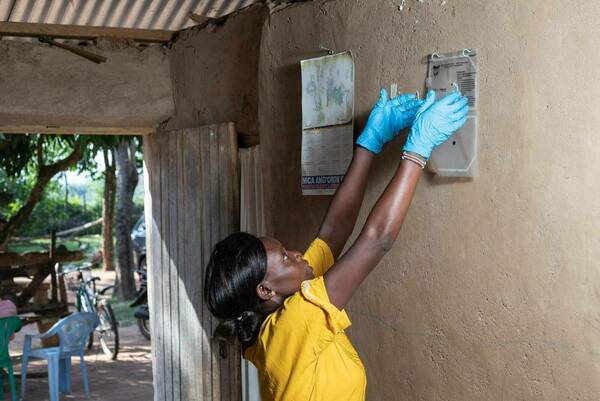Kroc Institute welcomes 15 new Master of Global Affairs, International Peace Studies students
The Kroc Institute for International Peace Studies, part of the University of Notre Dame’s Keough School of Global Affairs, has welcomed 15 new students pursuing a master of global affairs with a concentration in international peace studies (MGA-IPS). These students are part of the Keough School’s master of global affairs Class of 2024.
"Once again, we welcome a cohort of students that bring a wealth of experience, amazing energy and a real sense of purpose,” said Susan St. Ville, director of the international peace studies concentration. “We look forward to learning from their contributions in the classroom and in day-to-day conversations."
MGA-IPS students come to Notre Dame with an array of professional experiences, having worked in diverse sectors and fields including gender studies, development, humanitarian aid, research analysis, law, environmental protection, peace processes, combating disinformation, human rights, global communications, and more.
MGA-IPS students in the Class of 2024 come from 13 countries including Afghanistan, Egypt, Ghana, India, Iraq, Kenya, Myanmar, Pakistan, Singapore, Syria, the United Kingdom, the United States, and Yemen.
This year’s incoming students are:
- Eskandar Ataallah, Syria
- Matthew Bocanumenth, United States
- Halkano Boru, Kenya
- Noha Elsebaie, Egypt
- Rawand Faeq, Iraq
- Adeela Firdous, India
- Ciera Griffin, United States
- Nasiba Hamidy, Afghanistan
- Aung Myo Hein, Myanmar
- Fatima Faisal Khan, Pakistan
- Aleithia Low, Singapore
- Tes Osborne, United Kingdom
- Zakira Rasooli, Afghanistan
Master of global affairs, international peace studies students receive full funding and a living stipend from the Kroc Institute. The concentration builds on the Master’s in International Peace Studies program administered by the Kroc Institute for 30 years.
Originally published by at kroc.nd.edu on September 28, 2022.
Latest Research
- NSF Cyber SMART’s fall meeting shapes fifth year of project, legacy and future plans, and adds new memberThe U.S. National Science Foundation (NSF) Cyber SMART center gathered for its fall meeting on the University of Notre Dame campus this September. The meeting served as a checkpoint with progress reports and new projects from research leads and students…
- Slavic and Eurasian studies professor wins Humboldt fellowship to research how Russia’s religious past shapes its presentWhen Russia invaded Ukraine on Feb. 24, 2022, Sean Griffin realized his second book needed a new title. Griffin, an associate professor in the University of Notre Dame’s Department of…
- Notre Dame’s R.I.S.E. AI Conference builds interdisciplinary collaboration to inform human-centered artificial intelligenceAs artificial intelligence (AI) transforms nearly every sector of society — from healthcare and education to governance and global development — a critical question emerges: How can we conscientiously design and deploy these powerful technologies to positively impact society? This…
- University of Notre Dame joins the Global Coalition of Ukrainian StudiesThe University of Notre Dame has joined the Global Coalition of Ukrainian Studies after signing a Memorandum of Cooperation (MOC), formalized on September 24, 2025, at the Ukrainian Institute of America in New York City. Notre Dame joined four other American…
- The University of Notre Dame’s Mendoza College of Business and Industry Labs team up to inspire national security manufacturing competitiveness in the regionThe South Bend - Elkhart Region is full of manufacturing companies that are poised to grow, and Executive Master of Business Administration (EMBA) and Master of Business Administration (MBA) students at the University of Notre Dame are finding innovative ways to contribute to that growth. Earlier…
- Notre Dame research informs WHO conditional recommendation for spatial repellents in malaria vector controlThe World Health Organization (WHO) recently announced a “conditional recommendation” for spatial emanators, also known as “spatial repellents,” in the fight against malaria. This key determination was informed by spatial repellent studies that included the Advancing Evidence for the Global Implementation of Spatial Repellents (AEGIS) Project in Kenya, led by the University of Notre Dame and funded by Unitaid. The findings from this particular study were recently published in The Lancet.













